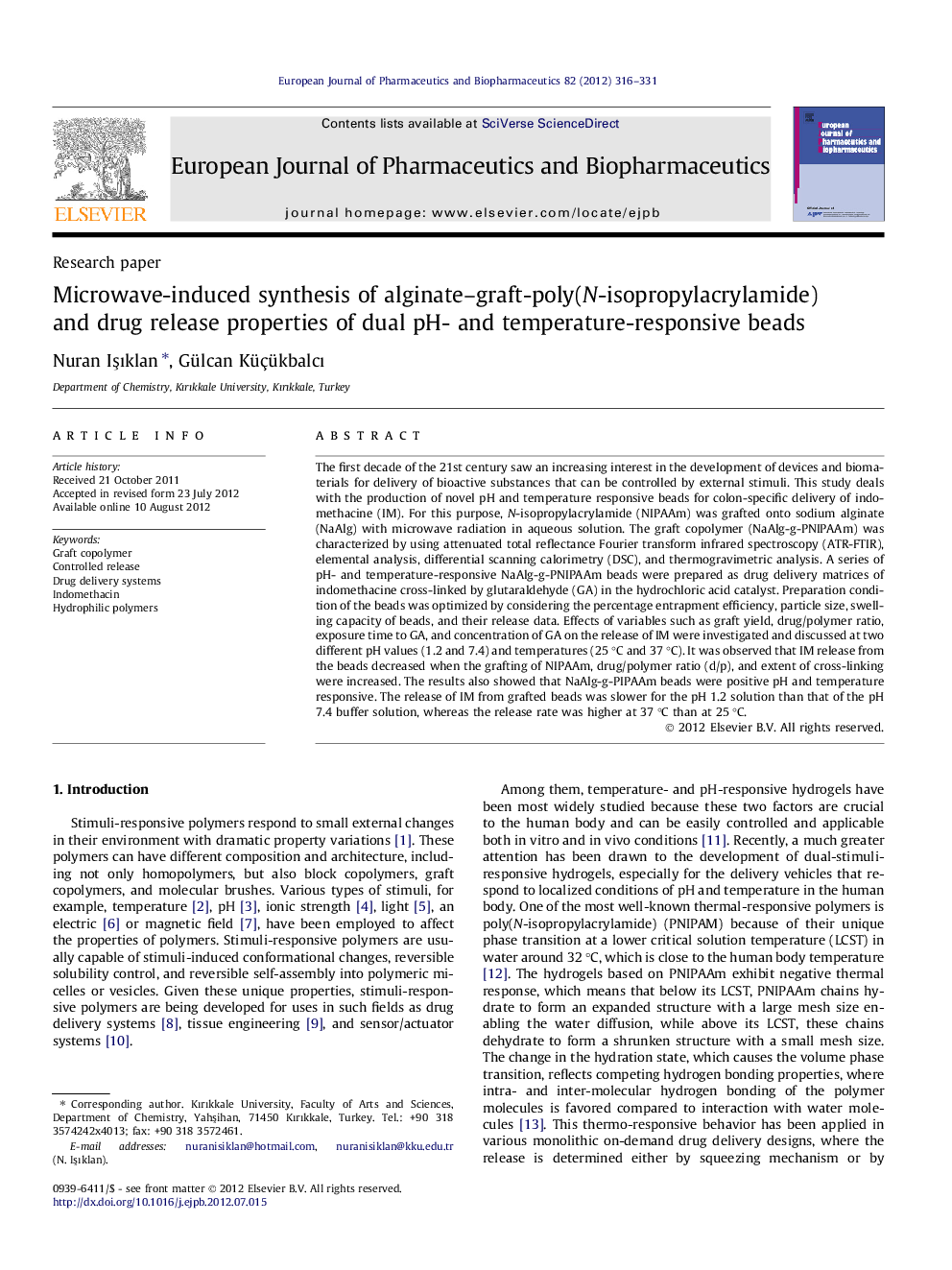| Article ID | Journal | Published Year | Pages | File Type |
|---|---|---|---|---|
| 2085243 | European Journal of Pharmaceutics and Biopharmaceutics | 2012 | 16 Pages |
The first decade of the 21st century saw an increasing interest in the development of devices and biomaterials for delivery of bioactive substances that can be controlled by external stimuli. This study deals with the production of novel pH and temperature responsive beads for colon-specific delivery of indomethacine (IM). For this purpose, N-isopropylacrylamide (NIPAAm) was grafted onto sodium alginate (NaAlg) with microwave radiation in aqueous solution. The graft copolymer (NaAlg-g-PNIPAAm) was characterized by using attenuated total reflectance Fourier transform infrared spectroscopy (ATR-FTIR), elemental analysis, differential scanning calorimetry (DSC), and thermogravimetric analysis. A series of pH- and temperature-responsive NaAlg-g-PNIPAAm beads were prepared as drug delivery matrices of indomethacine cross-linked by glutaraldehyde (GA) in the hydrochloric acid catalyst. Preparation condition of the beads was optimized by considering the percentage entrapment efficiency, particle size, swelling capacity of beads, and their release data. Effects of variables such as graft yield, drug/polymer ratio, exposure time to GA, and concentration of GA on the release of IM were investigated and discussed at two different pH values (1.2 and 7.4) and temperatures (25 °C and 37 °C). It was observed that IM release from the beads decreased when the grafting of NIPAAm, drug/polymer ratio (d/p), and extent of cross-linking were increased. The results also showed that NaAlg-g-PIPAAm beads were positive pH and temperature responsive. The release of IM from grafted beads was slower for the pH 1.2 solution than that of the pH 7.4 buffer solution, whereas the release rate was higher at 37 °C than at 25 °C.
Graphical abstractNew poly(N-isopropylacrylamide) grafted alginate copolymer (NaAlg-g-PNIPAAm) was synthesized and used for the preparation of novel pH and temperature responsive beads. The obtained NaAlg-g-PNIPAAm beads were found to be positive pH and temperature responsive.Figure optionsDownload full-size imageDownload high-quality image (62 K)Download as PowerPoint slide
